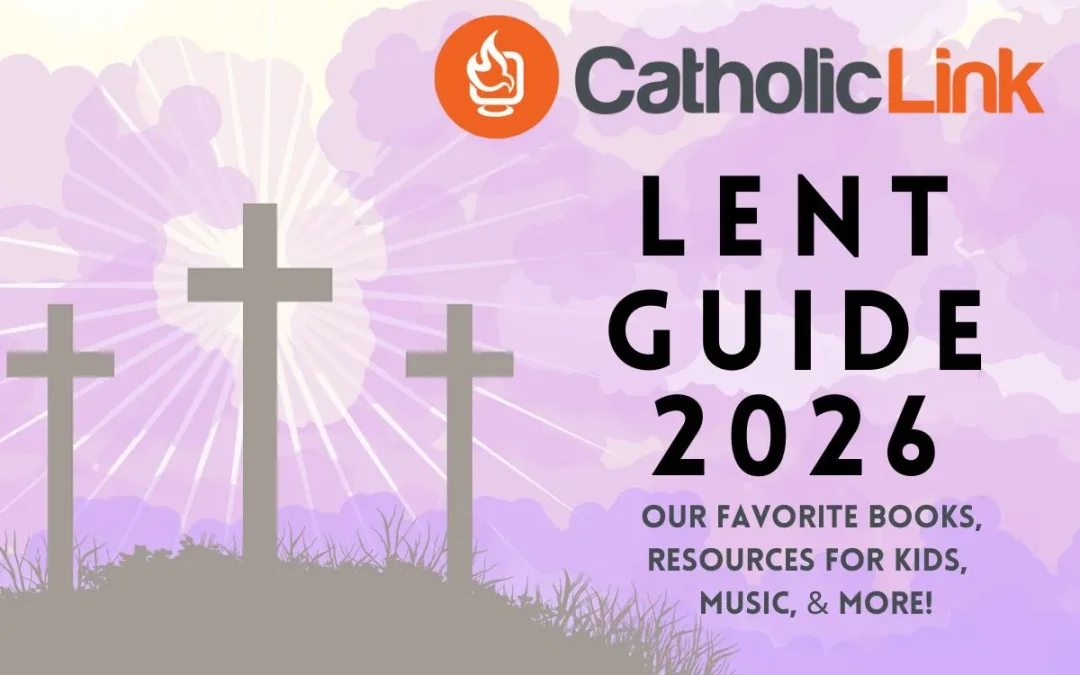Be aware. Understand. Take action.
These three steps are the fundamental message of St. Ignatius’ 14 Rules for Discernment of Spirits. First, we must become aware of what is happening in our spiritual lives, specifically, where we are in relation to God and what spiritual forces are acting upon us. As we become aware of the spiritual movements taking place in our hearts, St. Ignatius’ rules help us understand the nature of these movements, most principally if they are moving us closer to God, consolation, or away from God, desolation. Finally, this understanding allows us to take proper action–to either receive and engage in consolation or to reject and oppose desolation.
I had the great blessing of attending a weekend put on by Fr. Timothy Gallagher, a leading expert in St. Ignatius and his rules for discernment. He really opened my eyes to the wisdom and practical value of these rules. So often, we hear great spiritual insight from a talk or homily and are inspired, but then the day-to-day grind quickly subdues that fervor and makes the deeper spiritual things seem impossible. What I found so helpful from that weekend was the practical bridge from the spiritual highs to everyday life. St. Ignatius’ rules are specifically intended to reveal the spiritual in “ordinary” life and help us to respond appropriately.
For a more in-depth look at all the rules, you can find excellent material from Fr. Timothy Gallagher, which is a book, a YouTube series, and a podcast. I highly recommend taking the time to become familiar with all the rules in whichever format works best for you. To make the most of them, get a spiritual director too. This will make a massive difference in the impact and clarity you’ll get from the rules.
For now, I’d like to share some of my personal experience with a few of the rules and how they’ve made a tangible difference in my life. Specifically, we’ll be looking at the second, fifth, and thirteenth rules.
A note on the text of the rules: There does not seem to be one definitive translation of the rules into English. If you’ve read them before or look them up online, you might find the wording to be slightly different, but the meaning should be the same. The translations below come from Fr. Timothy Gallagher.
St. Ignatius’ The Second Rule Of Discernment
In the persons who are going on intensely cleansing their sins and rising from good to better in the service of God our Lord, it is the method contrary to that in the first Rule, for then it is the way of the evil spirit to bite, sadden and put obstacles, disquieting with false reasons, that one may not go on; and it is proper to the good to give courage and strength, consolations, tears, inspirations and quiet, easing, and putting away all obstacles, that one may go on in well-doing.
The second rule applies to persons actively striving for holiness. It describes the primary actions of the evil spirit, which includes Satan and any other force working against our good, and the good spirit, the Holy Spirit and any other forces working for our good. Notice that the evil spirit employs his tactics for a purpose, “that one may not go on,” and that the good spirit works for the exact opposite, “that one may go on in well-doing.” While seemingly obvious, these simple (though not simplistic) rules orient us. Much like a compass, another very simple tool, the rules keep us pointed in the right direction.
This floored me, which is a little embarrassing to admit given the simplicity of the rule. I was trapped in a way that I hadn’t even realized. At some point, I had grown accustomed to the idea that I simply had to endure my sufferings, as though God wanted me to just prove that I could handle being in darkness. So, when I was feeling spiritual sadness, disquiet, and stuck behind obstacles, I would Just. Stop. Moving. I would sit there assuming this was what God wanted and I was to just do nothing until He decided to change things. The enemy had twisted my understanding even of prayer (like the “valley of tears” in the Salve Regina) such that this seemed to be just a part of Catholic life. Heaven is when things get good, Earth is a slog.
Reading the second rule revealed that God doesn’t ever just want us to sit in spiritual darkness. Yes, life has obstacles. Yes, there are times of sadness and distress. However, God never intends for us to stop in those moments and get stuck there. He is a loving Father who gives earthly life as a gift, not a test. As Luke writes, “What father among you would hand his son a snake when he asks for a fish? Or hand him a scorpion when he asks for an egg? If you then, who are wicked, know how to give good gifts to your children, how much more will the Father in heaven give the Holy Spirit to those who ask him?” This rule completely reframed my view of the difficult moment and has inspired me to actively take action against spiritual suffering with the help of grace, not simply accept it passively.
St. Ignatius’ Fifth Rule Of Discernment
In time of desolation never to make a change; but to be firm and constant in the resolutions and determination in which one was the day preceding such desolation, or in the determination in which he was in the preceding consolation. Because, as in consolation it is rather the good spirit who guides and counsels us, so in desolation it is the bad, with whose counsels we cannot take a course to decide rightly.
This rule is straightforward. St. Ignatius is essentially telling us that if we’ve made a prudent decision in the consolation of the good spirit, don’t change it when we’re in desolation. Knowing where we’re at in terms of consolation and desolation can be a very practical and powerful tool to aid with decision-making.
For me, this comes up a lot when it comes to making time for prayer. The enemy does not want me to pray, so an attack in this arena isn’t surprising at all. Before prayer, I will feel dejected, lethargic, or anxious, with a feeling that there’s something else I “have to do.” These are classic tactics of the enemy to bring about desolation. Knowing this, I can firmly resolve with confidence not to change my plan for prayer. This happens so often that I almost expect it now. If I’m trying to make it to a daily Mass or get a Rosary in, it’s no surprise at all to feel any or all of these tactics at play. The fifth rule reminds me to stay the course, and I’ve never regretted it yet.
St. Ignatius’ Thirteenth Rule Of Discernment
Likewise, the enemy acts as a licentious lover in wanting to be secret and not revealed. For, as the licentious man who, speaking for an evil purpose, solicits a daughter of a good father or a wife of a good husband, wants his words and persuasions to be secret, and the contrary displeases him much, when the daughter reveals to her father or the wife to her husband his licentious words and depraved intention, because he easily gathers that he will not be able to succeed with the undertaking begun: in the same way, when the enemy of human nature brings his wiles and persuasions to the just soul, he wants and desires that they be received and kept in secret; but when one reveals them to his good Confessor or to another spiritual person that knows his deceits and evil ends, it is very grievous to him, because he gathers, from his manifest deceits being discovered, that he will not be able to succeed with his wickedness begun.
Rule 13 might be both the greatest blessing and the greatest challenge for me. Like many of us, I like to think that “I’ve got it.” I’m not particularly good at sharing feelings in general, much less temptations. The enemy likes to make us feel shame for being tempted, which makes it hard to talk about and is precisely what he wants.
The reality is that everyone is tempted. Jesus was tempted not only in the desert but also “has similarly been tested in every way” (Heb 4:15). If we’re tempted, that’s no surprise. There’s no shame in being tempted. That is the enemy’s work, not ours. We are only responsible for our response to the temptation. When we keep our temptations secret, the enemy can continue to wear on us and break us down until we give in.
However, when we call the temptation out, the enemy cannot operate as he wills. Similar to Rule 5, I have never regretted sharing the enemy’s attacks with a close and spiritual friend. Sometimes, it’s my wife, sometimes a friend, and definitely my spiritual director. Bringing to light what the enemy is doing really does work to disarm him.
The enemy throws everything he can at us to prevent us from speaking aloud the ways we are under attack because he knows that he will lose. This is such a powerful teaching, and it applies to more than the spiritual life as well. Addicts in recovery are encouraged over and over to talk to someone when they’re tempted or feeling weak. Psalm 36 tells us that “sin speaks to the sinner in the depths of his heart.” When we bring those challenges to the light, we are healed. We need someone we can be honest with, who is spiritually mature and trustworthy, and when we’re under attack, to let them know. It’s incredible how empowering that is.
These are just a few rules that have been particularly helpful for me. All 14 rules for discernment of spirits are important and helpful in keeping a soul oriented to God and able to keep moving towards God regardless of circumstance. I highly encourage reading through them or listening to one of the resources provided at the beginning of the article to see where the Holy Spirit pulls your attention. They are one of the great gifts of the saints to help us on our journey so we can be aware of what is happening to us spiritually, understand the nature of it, and act accordingly.
St. Ignatius, pray for us!
Image: Photo by christopher lemercier on Unsplash












